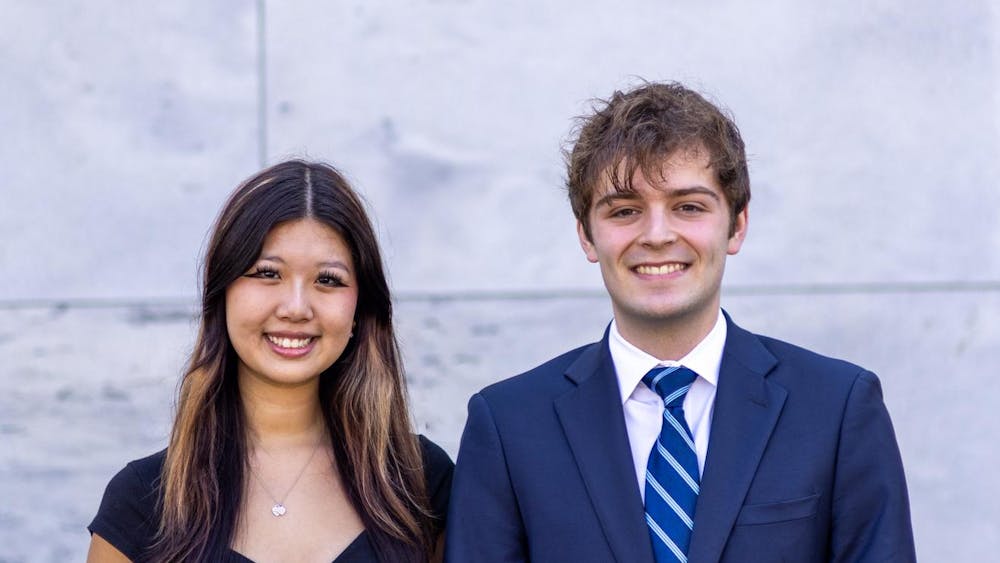The first step to recovering from a destructive addiction is acknowledgement. It’s time for the Emory community to acknowledge that we are addicted to plastic. We are utterly reliant on it, and it is ubiquitous in our daily lives. Think about a typical day as an Emory student: you wash your face, brush your teeth, put on clothes, make coffee, attend class, eat lunch and study some more. Unfortunately, your face wash, toothpaste, coffee cup, granola bar and chips, eating utensils, clothing, and water bottle used in that routine are probably all made from plastic or contain plastic in their packaging (unless you use Emory Dining’s compostable cutlery or cups). In order for Emory to break its plastic addiction, we need a commitment from students, faculty and administrators to reduce their plastic use.
Alarmingly, over 300 million tons of plastic are produced every year, half of which is single-use plastic, or plastic only used once before disposal, that poses the greatest risk to our environment. Common single-use items are disposable cups, plastic cutlery, shopping bags, lids, straws and multipack water bottles. Roughly one million plastic water bottles are purchased every minute, while up to five trillion single-use plastic bags are used worldwide every year in retail and grocery stores.
Our plastic dependence shows no sign of slowing. Plastic production and use will grow by 3.8% every year through 2030. If we don’t make any changes, there will be more plastic in the oceans than fish by 2050. Plastic has been found in Arctic ice, at the deepest depths of the ocean, in the food we eat and falling from the sky.
The way to reduce global plastic pollution is through solutions that actually work. Right now we rely too heavily on recycling and trash cleanups alone. Unfortunately, only 9% of plastic ever produced is actually recycled and trash cleanups mitigate the problem without changing the behaviors responsible. Despite these challenges, Emory University is in a position to make a difference. As a national leader in sustainability, Emory has a responsibility to promote earth stewardship and inspire broader change among other universities across Georgia and the nation. Change is possible if the Emory community curbs our reliance on single-use plastic and instead switches to reusable or compostable alternatives through policy changes.
Fortunately, we don’t have to quit this plastic addiction cold turkey. Instead, we can phase out unnecessary single-use plastic over time through a “Break Free from Plastic'' pledge on Emory and Oxford campuses, as well as participating Emory Healthcare locations. This pledge will eventually eliminate unnecessary single-use plastic but will also take into account the needs of those with differing abilities and restrictions that require use of such items. This pledge also aligns with the University’s goal to divert 95% of its waste from municipal landfills and promote a “reduce, repair, restore, and reuse” mentality by 2025. However, single-use plastic is not explicitly addressed in this commitment, and only through acknowledgement and action can we reach Emory’s waste reduction vision.
Once we acknowledge single-use plastic, the next step to meaningful reduction is action. The Emory community should look to the Plastic Free Emory Project, a student-led initiative dedicated to tackling single-use plastic through outreach, education, policy changes and, most importantly, a “Break Free from Plastic” pledge signed by President Gregory Fenves. Once enacted, this pledge would create a Plastic Free Task Force consisting of students and faculty to engage stakeholders in plastic reduction, continue to use viable alternatives and invest in education and resources to reduce single-use plastic use on the individual and institutional levels. Many academic institutions nationwide have signed similar pledges, enacted stringent purchasing guidelines, phased-out plastic bags and food service items in retail and dining locations, and committed to single-use plastic elimination by 2025. So far, 13 universities have signed the pledge and over 35 have active student-led campaigns.
Now is an opportune time to take this step because the city of Atlanta is combating our reliance on single-use plastic right now through Ordinance 19-O-1418. Going into force on Dec. 31, this ordinance prohibits the use of non-recyclable plastic items in municipal buildings. The University has a role to play in Georgia’s overall plastic usage, and President Fenves signing this pledge would support the city in its efforts to phase out unnecessary single-use plastic.
Pledges and ordinances like those mentioned above are crucial in reaching plastic sobriety. By eliminating the option for unnecessary single-use plastic, they simultaneously promote a reduce and reuse culture while also protecting the environment. Plastic is ingrained in our everyday lives, and to break the harmful cycle, local policies, campus policies, administrators, faculty, staff and students must all come together to “Break Free From Plastic.”
If you want your voice to be heard, please take this three-minute survey that aims to gauge the Emory community’s attitudes toward single-use plastic and Emory’s current waste management practices.
CJ O’Brien is from Windermere, Florida.








